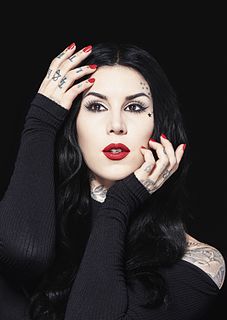A Quote by Paul Bloom
People differ in where they direct their empathy and their compassion. Many people are intensely concerned about the suffering of non-human animals, and some do not care at all. There are cultural differences.
Related Quotes
Most people don’t question the practice of eating meat. Many of these people care about animals and the environment, some deeply. But for some reason-force of habit, cultural norms, resistance to change-there is a fundamental disconnect whereby these feelings don’t translate into changes of behavior.
People tend to care about dogs because they generally have more experience with dogs as companions; but other animals are as capable of suffering as dogs are. Few people feel sympathy for rats. Yet rats are intelligent animals, and there can be no doubt that rats are capable of suffering and do suffer from countless painful experiments performed on them. If the army were to stop experiments on dogs and switch to rats instead, we should not be any less concerned.
The intelligence displayed by many dumb animals approaches so closely to human intelligence that it is a mystery. The animals see and hear and love and fear and suffer. They use their organs far more faithfully than many human beings use theirs. They manifest sympathy and tenderness toward their companions in suffering. Many animals show an affection for those who have charge of them, far superior to the affection shown by some of the human race. They form attachments for man which are not broken without great suffering to them.
I think most people who decide to become a musician have to be prepared for some degree of struggle. It makes the art better if you go through some struggles. To be an artist, in any form, you have to develop some sense of compassion and empathy - it's an important quality for everyone to have, on a human level. But I think, as part of our job, you have to be able to do that, so suffering, tends - if you allow it - to let you look on the bright side. It will help with those senses.
It takes courage to care for others, because people who care run the risk of being hurt. It's not easy to let your guard down, open your heart, react with sympathy or compassion or indignation or enthusiasm when usually it's much easier-and sometimes much safer-not to get involved. People who take the risk make a tremendous discovery: The more things you care about, and the more intensely you care, the more alive you are.
It's amazing to me how many people think that voting to have the government give poor people money is compassion. Helping poor and suffering people yourself is compassion. Voting for our government to use guns to give money to help poor and suffering people is immoral, self-righteous, bullying laziness.
Our economic order is tightly woven around the exploitation of animals, and while it may seem easy to dismiss concern about animals as the soft-headed mental masturbation of people who really don't understand oppression and the depths of actual human misery, I hope to get you to think differently about suffering and pain, to convince you that animals matter, and to argue that anyone serious about ending domination and hierarchy needs to think critically about bringing animals into consideration.
Years of cultural programming have taught us to love some animals while eating others, when in all reality, all animals are sentient beings with the capacity to feel, both physically and emotionally. Every day, I have the choice to live a life of compassion that not only saves animals but helps the environment.
When people want to inspire you to turn against some group of people, they'll often use empathy. When Obama wanted to bomb Syria, he drew our attention to the victims of chemical warfare. And in both of the Iraq wars, politicians said, "Look at the horrific things that are happening." I'm not a pacifist. I think the suffering of innocent people can be a catalyst for moral action. But empathy puts too much weight on the scale in favor of war. Empathy can really lead to violence.
People who take the risk make a tremendous discovery: The more things you care about, and the more intensely you care, the more alive you are. This capacity for caring can illuminate any relationship: marriage, family, friendships-even the ties of affection that often join humans and animals. Each of us is born with some of it, but whether we let it expand or diminish is largely up to us. To care, you have to surrender the armor of indifference. You have to be willing to act, to make the first move.
Your assumptions about the lives of others are in direct relation to your naïve pomposity. Many people you believe to be rich are not rich. Many people you think have it easy worked hard for what they got. Many people who seem to be gliding right along have suffered and are suffering. Many people who appear to you to be old and stupidly saddled down with kids and cars and houses were once every bit as hip and pompous as you.



































